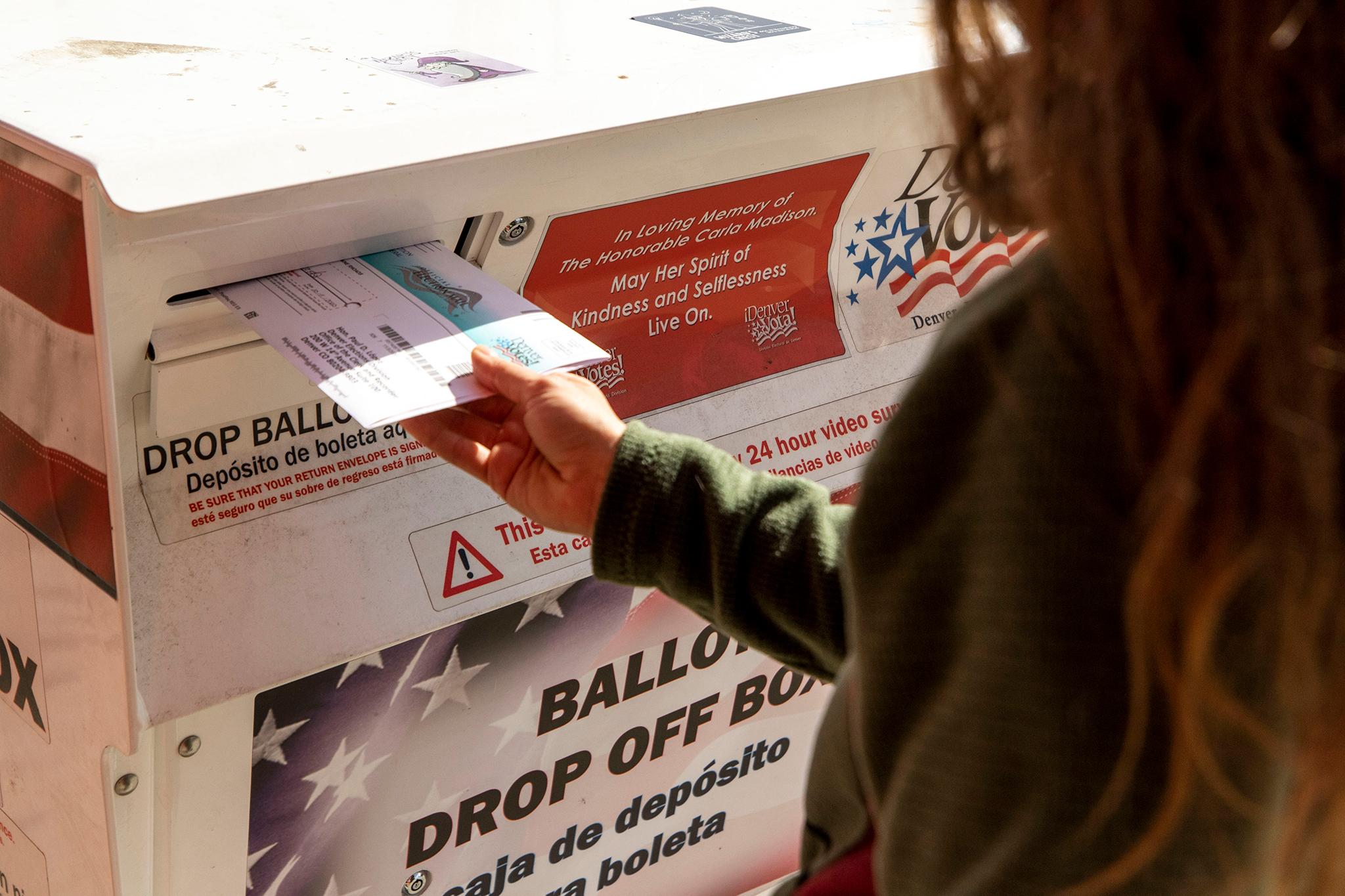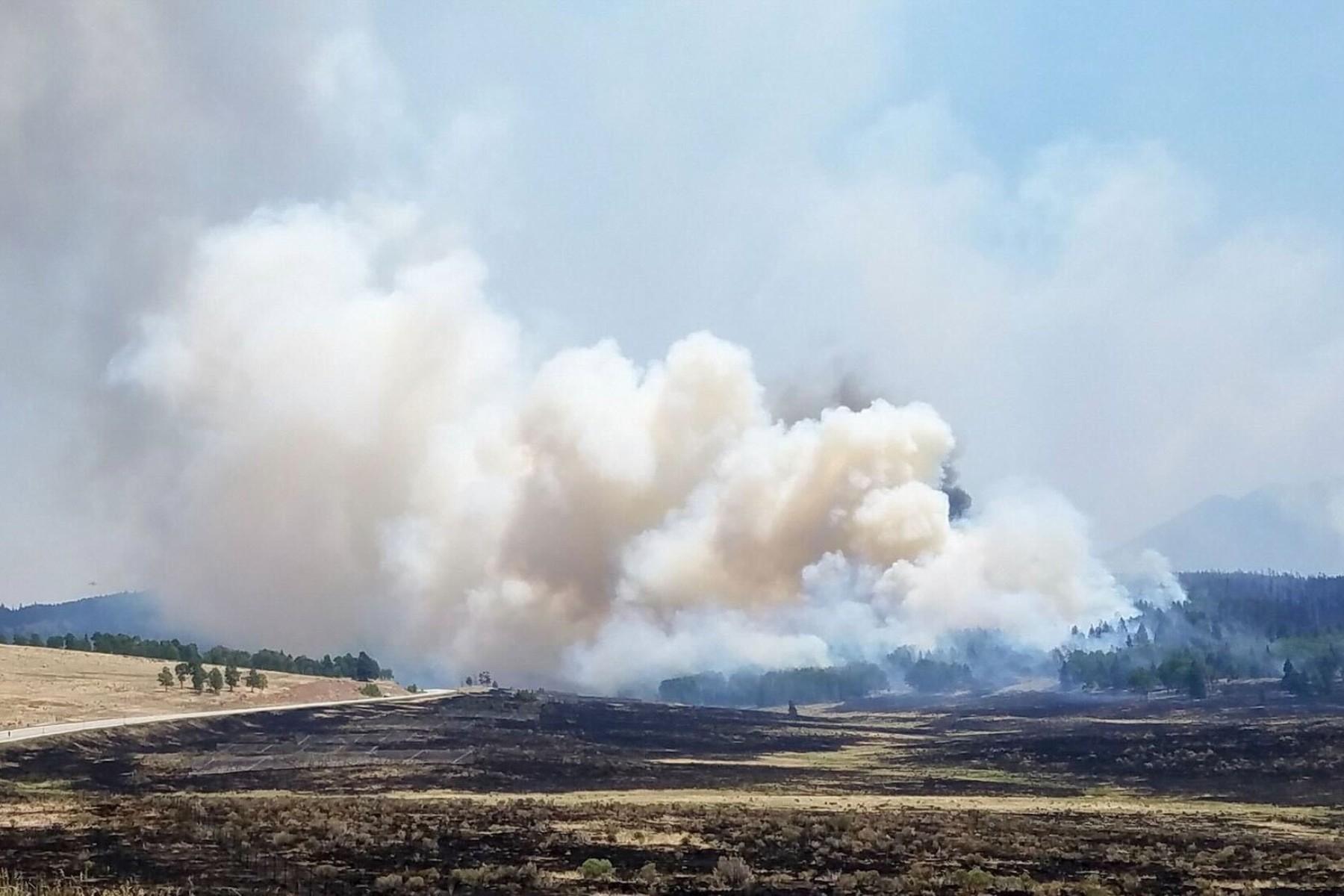
The first meetings of Colorado’s independent congressional redistricting commission were supposed to be about dry, bureaucratic tasks — like hiring attorneys and adopting rules of order.
Instead, the group spent nearly two hours on Monday stripping its newly appointed chairman, Danny Moore, of his leadership role because of his public comments questioning the results of the 2020 election and his description of COVID-19 as a “Chinese” virus.
Moore, an entrepreneur and a Republican, is one of 12 bipartisan commissioners who are responsible for drawing a new electoral map for Colorado’s congressional districts. The other commissioners appointed him as chair last month; soon after, 9News and other outlets reported on Moore’s earlier social media posts about the election.
“By any account, the election of 2020 will go down as the most questioned election in our country’s history,” he wrote in January in a post reviewed by Colorado Public Radio News.
“What we know for sure is that mass mail-in ballots can be controlled by the people you give them too [sic] (the Postman, ballot counters.) Once you hand them over you lose any voice you thought you had,” the post continued.
There is no credible evidence of widespread election corruption.
Moore’s post went on to acknowledge that Joe Biden would be president and offered his “respect for the office.” A few weeks later, though, he made a post about "the Democrat steal," asking how "80 MILLION Americans" could have voted for Biden, according to The Colorado Springs Gazette. The post claimed it was "stating for a friend." Separately, Moore wrote that there were "too many people involved for this to stay a secret."
Ultimately, his unfounded comments about the election, along with separate posts about the “Chinese virus,” led other commissioners to say he wasn’t fit to lead the group, arguing that he had lost the trust of the public.
The group voted 11-0 to remove Moore from the chair position, with Moore abstaining. Moore will remain as a member of the commission. The chair is an administrative role — basically, the person who runs meetings and makes decisions about spending. The chair does not have any additional power on the commission’s mission of drawing maps.
The debate played out on Monday at the group’s third meeting. Moore opened the virtual meeting by outlining his history of military service, successful entrepreneurship and charitable donations.
“I want to assure to you that I am focused on what is right for Colorado, what voters wanted in this commission,” Moore said. “You don’t get more diverse than what I am: I am a Black man and I am a conservative.”
Moore also read social-media comments implying that 9News’ reporting was a racist attempt to take a Black man from power. He claimed that his comments, which were made publicly, were taken out of the context of a freewheeling conversation with Moore’s friends. And he said he “meant no offense” with his other comments linking Chinese people to the pandemic.
“Perhaps they were insensitive, but I meant no harm in that,” Moore said.
That wasn’t enough for several of his fellow commissioners.
“What is at issue here is Commissioner Moore's ability to be fair and impartial in his work for this commission .. and whether he can uphold Coloradans’ trust,” said Paula Espinoza. She also pointed to his posts about COVID-19 and asked whether he could tell “fact from fiction.”
It was a dramatic meeting, but perhaps not a surprising one. Only 32 percent of Republicans believe that the 2020 election was “free and fair,” according to a late January poll by Morning Consult. And the commission was mandated to include equal numbers of Republican, Democratic and unaffiliated members. The members were appointed through several rounds of random selection and decisions by legislative leaders and a panel of judges.
Moore said he respected the commission but refused to step down even when it was obvious that he would be removed. It would be better for the public trust if the commission made a public decision, he said.
“This is not the end. Today it’s me, tomorrow it will be someone else, and we’ll continue to have to answer these questions about posts and comments,” Moore added.
After the removal vote, he said he had no ill will. “This is how the commission builds trust. This is how we focus on what is right,” he said. “Thank you for allowing me to serve you. My hope and prayer today is that no other commissioner has to experience what I experienced.”
The commission is supposed to represent a revolutionary new approach to redistricting. Often, state legislatures draw the election maps, which can result in gerrymandering that favors one party over another. Colorado voters approved the new approach through a constitutional amendment in 2018. The amendment requires that an independent commission draw maps that meet certain metrics every 10 years.
As of that year, Colorado was one of only four states to use an independent commission for all of its redistricting, according to the Brennan Center.
The commission’s work may not get any easier from here. The group needs U.S. Census data to make its maps, but that data is expected to be months late — which could create chaos for the commission and for next year’s elections. The commission will likely have to decide whether to draw draft maps based on preliminary data and projections instead.
Up next on Monday’s agenda, though, was a discussion about how commissioners should respond to questions from the media.
The commission’s vice-chair, Carly Hare, an unaffiliated voter, took on the role of chair.









